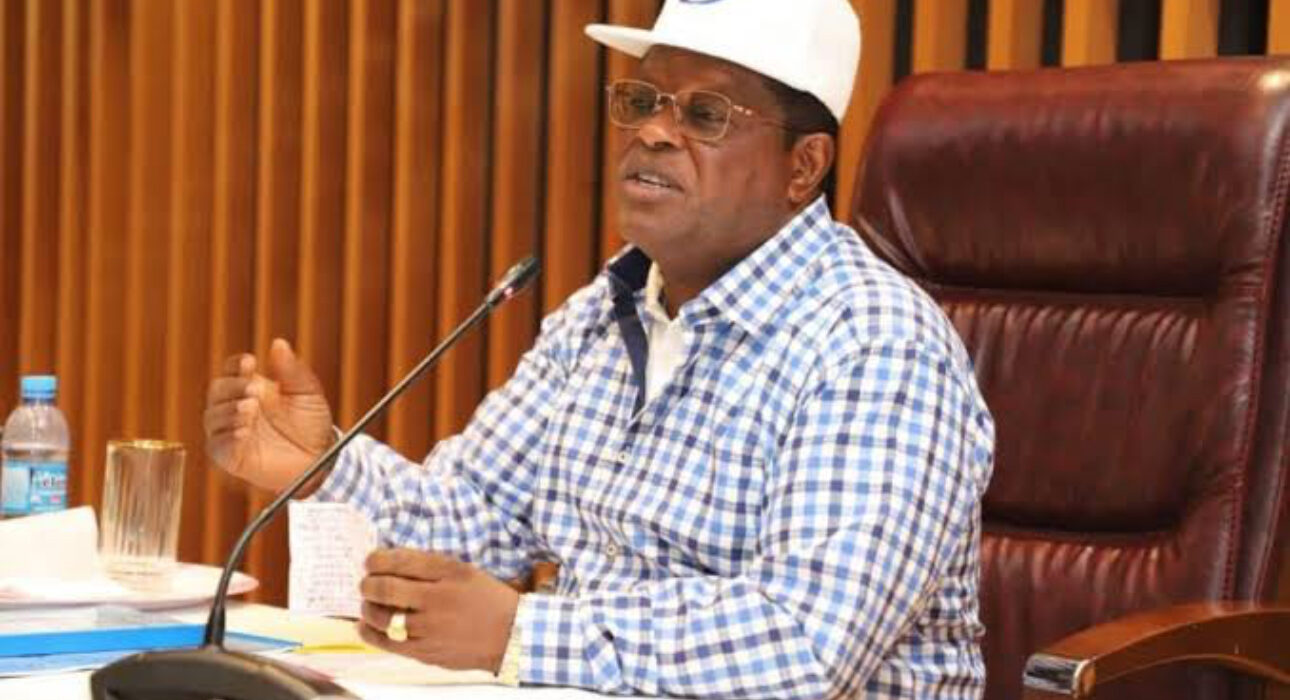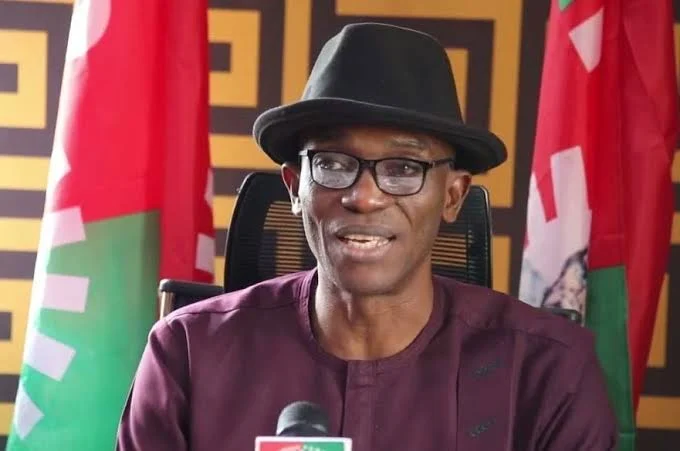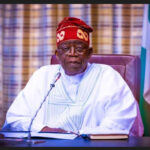Citing Infrastructure Gains, Political Inclusion, Umahi Urges South-East to Back Tinubu’s Re-Election

Nigeria’s Minister of Works and former Governor of Ebonyi State, David Umahi, has called on the people of the South-East to throw their support behind President Bola Ahmed Tinubu’s second-term bid in 2027, insisting that the region is now reaping the benefits of political alignment with the centre.
Umahi, who spoke during a political consultation in Ebonyi, said that the administration of President Tinubu has demonstrated a level of commitment to the South-East that surpasses anything the region has seen since the return of democracy in 1999.
The Minister noted that major federal road projects that had been neglected for decades are now receiving direct attention, funding, and implementation under the current administration.
He cited the Enugu–Onitsha Expressway, Enugu–Port Harcourt Expressway, Onitsha–Owerri Road, and the Second Niger Bridge access roads as clear examples of the government’s renewed focus on the region.
According to him, over 30% of the required funds for these projects have already been released and disbursed to contractors, with work ongoing across multiple locations in the South-East. Umahi also praised the approval and funding of a 465-kilometre superhighway project spanning Cross River, Ebonyi, Benue, Kogi, Nasarawa, and the Federal Capital Territory, with significant sections of the project serving communities in the South-East.
He revealed that over ₦445 billion has already been committed to the corridor, with ₦108 billion paid out to contractors handling key segments in Ebonyi and Enugu.
Beyond infrastructure, Umahi emphasized that political representation for Igbos at the national level has improved significantly under Tinubu. He highlighted his own appointment as Minister of Works — the first time an Igbo man has held that position in Nigeria’s political history — as well as the appointment of an Igbo Chief of Naval Staff and other strategic ministerial slots.
According to Umahi, these appointments are not mere symbolism, but strong indicators that the South-East is finally gaining its rightful place in national governance.
He argued that such inclusion should not be taken for granted, and urged the region to consolidate its political relevance by rallying behind Tinubu in the next general election.
In his words, “This is the first time the South-East is being given a visible seat at the table. If we support other regions today, tomorrow they will support us. Political cooperation is built on mutual trust and strategic partnerships, not antagonism.” Umahi said he is already in consultation with other South-East governors to convene a regional summit where leaders, stakeholders, and representatives across party lines would jointly endorse President Tinubu for a second term.
He extended the call for unity to opposition figures, including Labour Party presidential candidate Peter Obi, urging them to “set sentiments aside and come together in the interest of the South-East and national unity.”
His remarks have, however, sparked debate within the region. While some political figures and traditional leaders welcomed the Minister’s message, others expressed concern that early support for Tinubu could weaken the region’s long-standing campaign for an Igbo presidency.
Elder statesman Professor Ihechukwu Madubuike questioned Umahi’s authority to speak on behalf of the entire South-East, warning that the region’s political future should not be bargained away in exchange for short-term infrastructure projects.
Some civil society voices also called for wider consultations across communities before any form of official endorsement is made.
But Umahi appeared unfazed by the pushback. He maintained that aligning with Tinubu was not just about politics, but a pragmatic move to protect the gains already achieved and secure future leverage.
He added that the South-East had nothing to gain from political isolation, and that consistent opposition had cost the region federal attention for years.
“We cannot continue to stand on the sidelines and expect to be carried along. The time to engage is now,” he said.
As political preparations for the 2027 election gradually begin to unfold, Umahi’s call is expected to shape early conversations within the South-East political class.
While opinions remain divided, the Minister’s message underscores a strategic shift — one that seeks to position the region not as a perpetual outsider, but as an active player in determining Nigeria’s leadership future.









